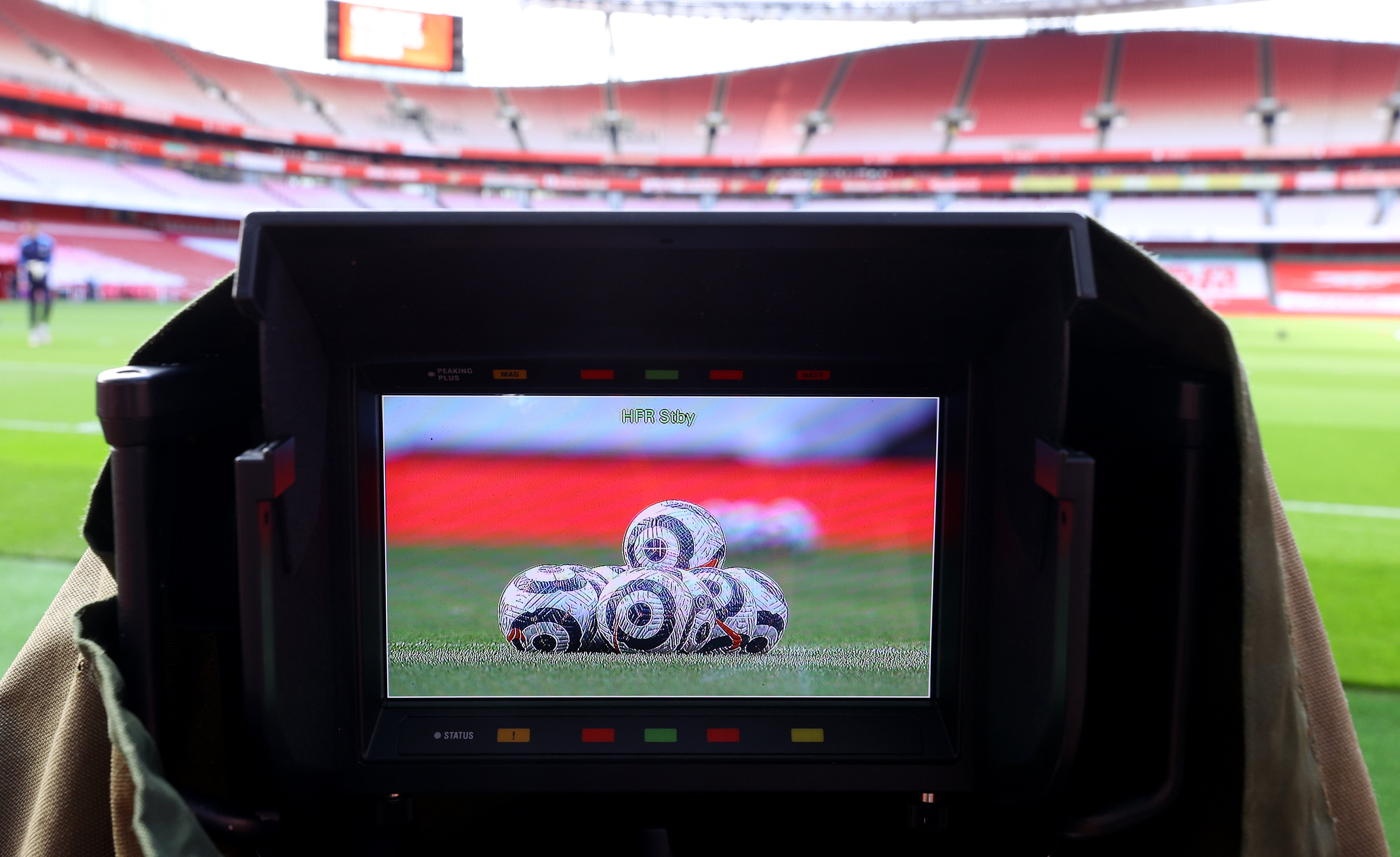Should Arsenal vs Everton be on TV tonight? Premier League broadcast rules explained
Arsenal-Everton was originally due to be played in September but the death of Queen Elizabeth II led that weekend’s fixtures to be postponed

Your support helps us to tell the story
From reproductive rights to climate change to Big Tech, The Independent is on the ground when the story is developing. Whether it's investigating the financials of Elon Musk's pro-Trump PAC or producing our latest documentary, 'The A Word', which shines a light on the American women fighting for reproductive rights, we know how important it is to parse out the facts from the messaging.
At such a critical moment in US history, we need reporters on the ground. Your donation allows us to keep sending journalists to speak to both sides of the story.
The Independent is trusted by Americans across the entire political spectrum. And unlike many other quality news outlets, we choose not to lock Americans out of our reporting and analysis with paywalls. We believe quality journalism should be available to everyone, paid for by those who can afford it.
Your support makes all the difference.It is an odd quirk of the Premier League’s TV rights that tonight’s important game between leaders Arsenal and relegation-threatened Everton will not be shown live in the UK, but will be broadcast in Denmark, the Dominican Republic and Djibouti.
Pick any country or territory in the world: the Premier League lists 39 separate international TV deals on its website which cover almost every part of the globe.
But fans at home have long faced limits. Currently only 200 of the Premier League’s 380 games per season are allowed to be shown live in the UK: Sky Sports owns the rights to 128 of those, BT Sport shows 52, and Amazon broadcasts the other 20. The rest are mostly hidden behind the Saturday ‘blackout’ – a law which dates back to the 1960s preventing football from being shown on UK TV between 2:45pm and 5:15pm, in an effort to protect the attendances of lower league clubs.
Arsenal vs Everton was affected by an unusual set of circumstances. The game was originally scheduled for 3pm on Saturday 10 September, but the death of Queen Elizabeth II led that weekend’s fixtures to be postponed by both the Premier League and English Football League (bizarrely, the Football Association also called off grassroots games up and down the country).
Three weeks ago the Premier League announced that the game would be played at 7.45pm on Wednesday 1 March, along with Liverpool vs Wolves, as all four teams had been knocked out of the FA Cup and thus had a free mid-week when Cup games were scheduled.
However, because Arsenal-Everton was originally due to be played during the Saturday blackout, it was not among the original TV picks for that September weekend meaning none of the UK’s three live broadcasters owned the rights to the game, and so it could not be broadcast. TalkSport radio will have live radio commentary of the match, but TV viewers will have to wait until Saturday’s edition of Match of the Day to catch some highlights.
The blackout rule and the limited number of games on British TV is a divisive subject. A spokesperson for The Football Supporters’ Association told The Independent that the organisation still vehemently supports limiting the number of broadcasted matches, and the FSA continues to back the blackout. The FSA believes there are already too many games on TV, and would like fewer matches to be broadcast live in order to encourage and benefit match-going, ticket-paying fans.
However, the FSA acknowledges that football fans are forced to pay a lot of money to subscribe to Sky Sports, BT Sport and Amazon Prime Video if they want to watch just a portion of their team’s games on television. The idea of divvying up Premier League matches between multiple broadcasters was to prevent a Sky monopoly on football, but the effect has been to the cost of the consumer. The end result is an increased uptake in illegal online streams, something the Premier League is trying to stamp out.
The EFL is considering ending its commitment to the 3pm blackout in order to seek a more innovative solution for how its product is broadcast, after so many years relying on the same TV model. Tech companies like Netflix and Meta have been linked with the rights.
But the Premier League is unlikely to change tack any time soon, given its hugely lucrative existing deals, and with its current broadcast contracts set to run until the end of the 2024-25 season. Apple has been tipped to wade in and blow Sky Sports and co out of the water when the time comes, having already secured a 10-year deal for Major League Soccer, but there has been no confirmed interest.
So love them or hate them, the Premier League’s TV rules are set to stay. Arsenal’s match with Everton may be unusual in how it’s postponement came about, but plenty more games like this one will continue to be hidden from our screens for the foreseeable future.

Join our commenting forum
Join thought-provoking conversations, follow other Independent readers and see their replies
Comments